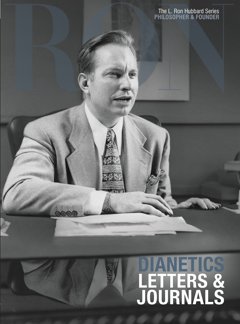Dianetics for Dummies
Dianetics for Dummies
Blog Article
Not known Details About Dianetics
Table of ContentsSome Known Details About Dianetics Some Known Details About Dianetics Some Known Incorrect Statements About Dianetics The Greatest Guide To Dianetics
I could not ever before not want to receive anything that comes to mind for you- if it was otherwise, I would not be resting here with you, doing this. I not just can never ever have a trouble, or otherwise intend to listen to something that comes to mind for you, however I'm completely anxious to know every idea, every idea, every image or sensation that emerges or materializes for you- do not ever assume or else, and if somehow you do, please just allow me understand! Sometimes, you may have an idea, and image, concept or occurrence appear that does not seem to answer the concern, or connect to it, however nonetheless, constantly do inform me concerning it, and as we proceed, the significance will certainly arise for you.This is inherent in the basis of processing, and the topic of this discussion: the basic functions of the counselor and the client: The fundamental function of the counselor is, in contrast to "common training", not to manage, which indicates to implement and/or prevent, yet to instead work from the basis of EMPOWERING THE CUSTOMER.

Some Known Facts About Dianetics.
John Mcmasters revealed this fundamental reality wonderfully well in one of his talks on Power processing, in which he describes how he was asked what this "special propensity" was that he had for giving such excellent sessions; he had to think of that for a moment, and detected that it was what he wasn't doing, as well as what he was doing: he had not been reviewing, evaluating, computing, or actually, creating any thoughts, not to mention spoken expressions, after providing the command and while waiting on the computer to complete their response to their contentment; he was, simply and just, existing with the computer, and entirely interested.
The function of the counselor, demonstrated; that was his "special flair". I have actually had my own experience which taught me this well, very early on in the video game. In 1982, having just recently completed my training and teaching fellowship on New Age Dianetics, I was running this on a PC, and there was a point in the session where (being a bit damp behind the ears not yet having several hours under my belt as an expert auditor) the PC appeared to be "taking as well long" to share anything vocally after I offered him a command.
This key became the most important payment that John ever made to the topic of therapy or bookkeeping (Dianetics). In my simple viewpoint, it is the best contribution that any person has actually ever made to these subjectsthe application is totally non-judgemental, non-evaluative, and without any pointer, guidance or opinion.no preconceived agenda for people, or 'degrees' that they need to do
In Scientology we prided ourselves on not reviewing for people. All that really suggested was that the auditor did not Vocally assess for the Computer in session.
The 4-Minute Rule for Dianetics

Any individual that had actually ever seen John audit could not assist however see an unique top quality in his bookkeeping."The client's standard duty is to be there with the objective of relocating the instructions of their spiritual objectives, and to freely and completely share and experience whatever shows up for them in addressing the concerns and carrying out the guidelines in the processing.
This is something to process as needed. But likewise, people frequently have prior experience and/or brainwashing in auditing/processing which, somehow, and useful site to some extent, really misdirects them right into perspectives, concepts and actions patterns that prevent the full realization of these roles, and so they will have a tendency to inhibit the expressing of what comes to mind, as in the instances provided above. * The first, and perhaps primary examples of mis-indoctrination leading to less than completely smooth and efficient sessions, can be discovered in certain facets of the training regimens, or "TR's":"TR's" are typically a person's very first, or at the very least early, experience in Scientology, and while I will take place to discuss what I see as the flaws in concept and practice, however, have a tendency to be significantly therapeutic, done as they are offered (Hubbard firmly insists that "TR's are not refining, they are training", however factually, they are both handling AND training)
Alan Walter made comparable monitorings, and improved these with his "Existence Processes". There is no "failing", and no denial of the fact of this being handling. The focus, as it should be, is on experiencing the various other person's existence. All the symptoms which get a "fail" in doing "TR-0" are merely the being's efforts to stand up to the various other individual's existence, and instead of being bugged and pestered with "Flunk", which enforces "failure!" on the being, one just requires to be urged to "stick their feet in the water a little much deeper", to significantly restore their ability click and willingness to completely share and experience "being below", or "visibility", with others.
The Greatest Guide To Dianetics

Report this page